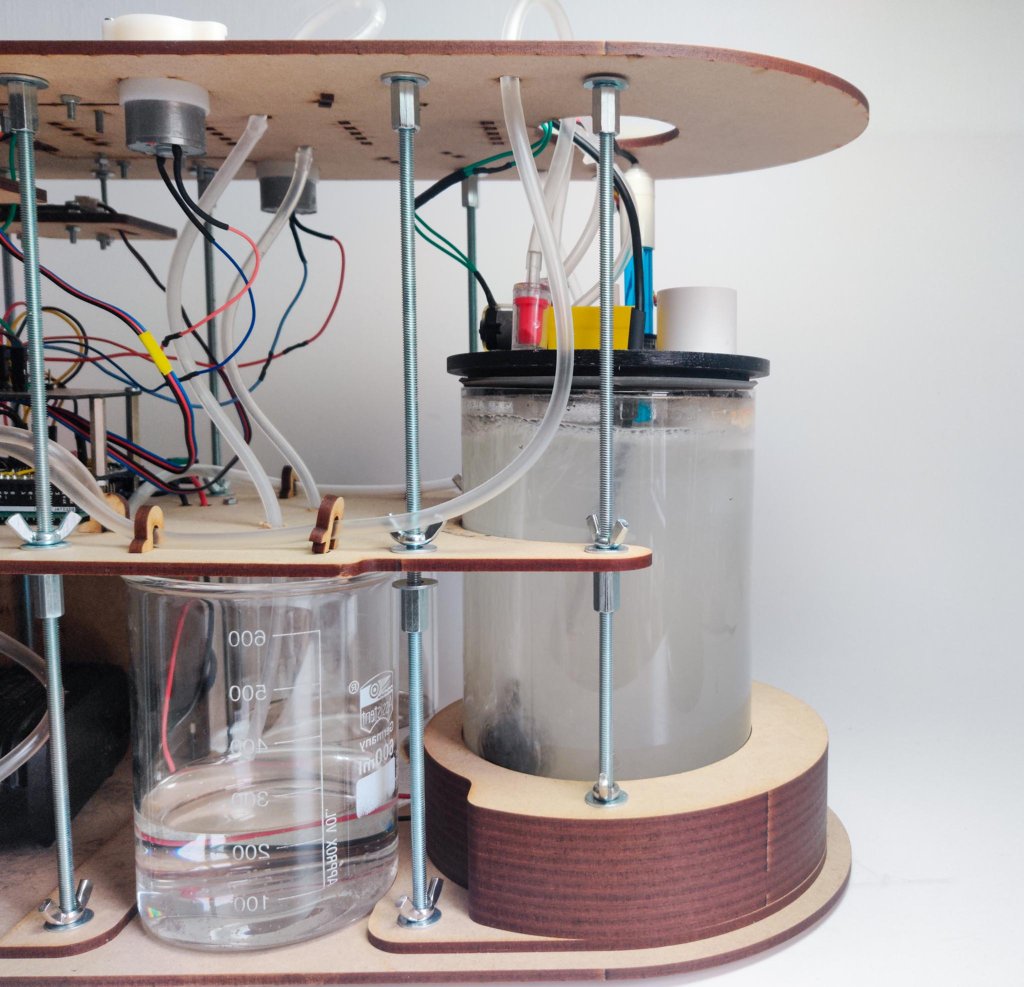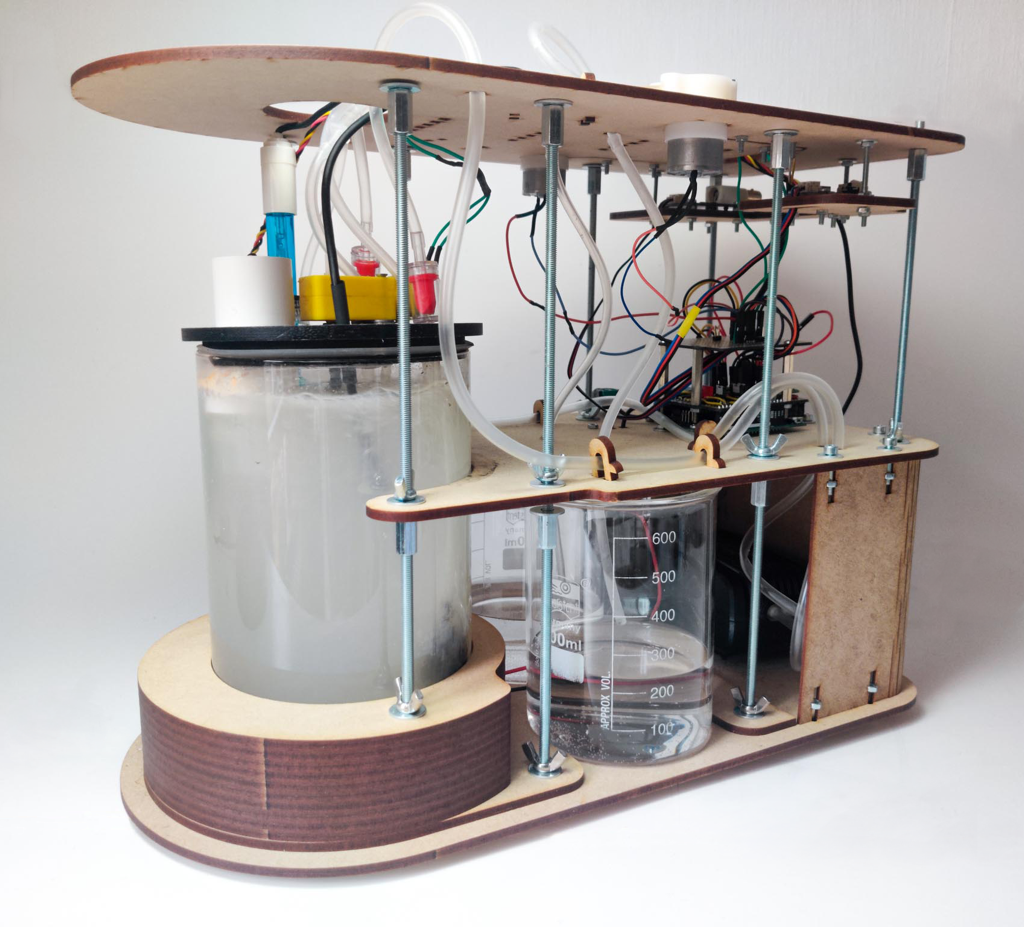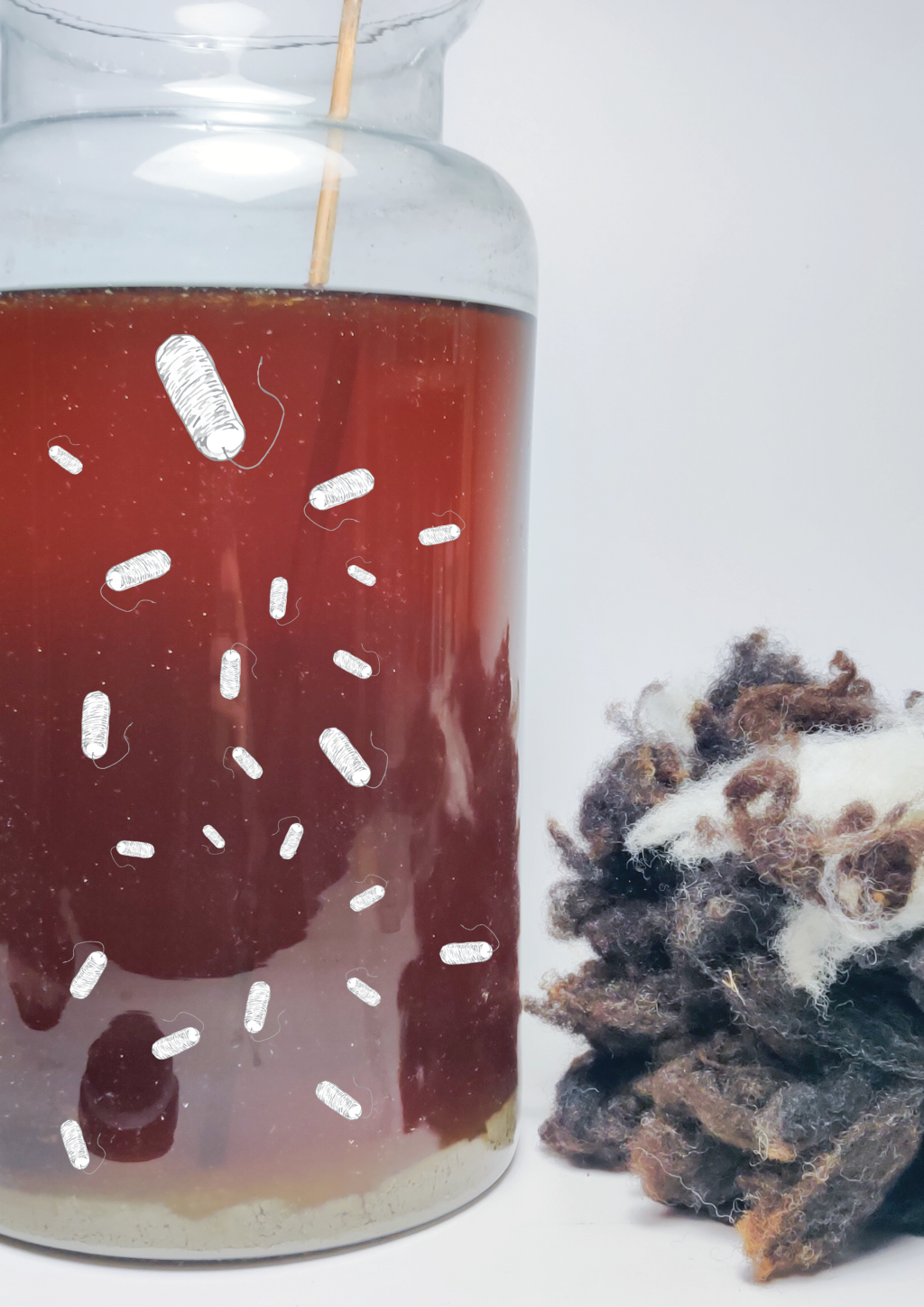Wool Cultures
Marc Wijkmans, Oscar Tomico Plasencia

The popularity of wool as an environmentally friendly and natural alternative for non-renewable materials is growing. While significant strides are being made in developing innovative wool-based solutions, the process of cleaning raw wool has received much less attention. Raw sheep wool naturally contains many contaminants that make the wool feel greasy and dirty. Impurities like wax, grease, suint, mineral soil, dead skin cells, dust, and vegetable matter have to be removed before the fibre can be used and processed further into products and applications. Unfortunately, the traditional wool cleaning process is far from sustainable. It relies heavily on large quantities of water, chemicals, soaps, and energy, generating substantial toxic effluents and contaminated water.
In this project. we set out to innovate the wool-washing process by creating a more eco-friendly and user-friendly method that reduces water and energy usage and eliminates the need for chemicals or soaps. Extensive experimentation revealed that wool can be cleaned effectively using micro-organisms. Essentially, the wool undergoes a rotting process. While wool fibres are incredibly strong and resilient to digestion, the contaminants are much easier to break down. The micro-organisms feed on these impurities, leaving the wool “cleaner”.
A key part of this process involved cultivating the micro-organisms. To do this, a DIY bioreactor was designed and built. The bioreactor also resulted in a more caring and understanding attitude towards the micro-organisms. Once the cultures were ready, they were introduced to a large container filled with wool and water. From there, it was just a matter of letting time work its magic as the microorganisms cleaned the wool.


To create a more environmentally friendly way to wash wool, the project turned to the natural world and integrated biological processes into existing practices. Despite the promising results, the project also brought up some difficult questions about ethics. Integrating the biological world into existing practices may lead to greener solutions, but it also reshapes the relationships between humans, non-humans, and non-living objects. With regards to this project, it can be speculated whether the micro-organisms are collaborators in a symbiotic relationship with humans, or whether they are simply being exploited for our own ends.
Share
Contacts
- -
- -Oscar Tomico Plasenciao.tomico@tue.nl
